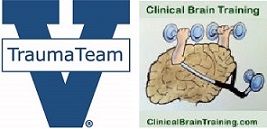So…if you’ve got a GPA over 3.8 and MCATs in the top 5 percent, you don’t really need to read this. As long as you don’t come across as a shut-in or an axe murderer, you will probably be accepted to at least a few, if not all of the medical schools you apply to. But for the rest of you, let’s talk about the other parts of the application, namely what you did with your spare time in college.
First thing, no one cares what you did in high school. Eagle scout, all-county football, whatever don’t embarrass yourself by putting that on your med school application. They don’t care what you did when you were 16. Now as far as what you did (or should do) in college to prepare yourself, and make yourself attractive to medical schools, here’s my take on it. I gave you my qualifications to make these opinions in my previous post.
Clinical experience: I think it is vital that you touch patients enough to know whether being a doctor is the right thing for you. Even if you think you are going to be a pathologist, you are going to spend a whole lot of time with patients in med school, and you better at least tolerate it. Volunteering in the hospital is more of a high school thing, and is not looked upon with favor.
The choices are: follow a doc around (maybe your parent if you’re lucky) enough to be able to write in your essay how much you feel medicine is a “wonderful mix of science and art where I get to combine my love of the scientific world with my humanistic nature”. Don’t copy that, but I must have seen it on 75% of the applications I reviewed.
Next: be a scribe. This is something that was not around when I was in college and is an interesting choice if you don’t want to expend the effort to become an EMT, or an ER tech, or something else more hands on. You get paid, and you get to be a transcriptionist. Don’t mean to belittle this experience, but you are not making medical decisions, you are not examining patients and synthesizing their history, physical, and lab data into a diagnosis and formulating a treatment plan. It does demonstrate that you went to the effort to actually work in the hospital, and you get to hang around with docs and residents and maybe get invited to a few parties. Many people do this, and a lot of them get into medical school, but I’m not sure if that’s true, true, and unrelated.
Next: be a lab tech, ED tech, burn tech, etc. These jobs require some training, and you are actually working on the front lines, touching patients, drawing blood, changing dressings, etc. There is a possibility this will turn you off from being a doctor, but better to find out now than when you start your third year. This is impressive because you were willing to get your hands dirty and get in the fight.
Next: be an EMT, Medic, and/or firefighter. This is what my wife and I did, and it pretty much changed our lives for the better. We met people who are our friends after 30 years, it gets you around great guys and gals that you wouldn’t normally be with in college, and it gives you the best possible clinical experience. This experience is that you get medical training, you apply it through direct patient interactions where you actually have to make critical clinical decisions, and most importantly you are exposed to medical error and corrective actions, which are very important to see. It requires you to take time to get trained, to study, take tests, demonstrate your competence, and run shifts. Needless to say, this is my recommendation.
Finally, to make yourself the ultimate triple threat, you need research (grades, clinical experience, and research is the triple threat). It is not hard to find research opportunities if you go to school near an academic medical center, but it takes effort to get something worthwhile out of the experience. I have been the “mentor” for quite a few college students who didn’t do squat, and a few that worked their butts off. It is pretty much up to you. When I did this, I just looked in the back of the scientific journals, and wrote letters to people I wanted to work with. Usually they know people where you are and can hook you up. Also, many colleges have summer and school year research programs that are easy to get into. Research is also interesting. It is important to learn the scientific method, and how to design and interpret an experiment. My research experience has made me a better doctor by teaching me how to evaluate scientific evidence. I think if you can do it, research is very important. You probably will not get to publish anything unless you get real lucky, but the letter of recommendation from the research mentor will be helpful.
Well that’s it. Hope this was helpful. Don’t hesitate to contact me if I can help.
JY



 Subscribe in iTunes
Subscribe in iTunes